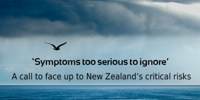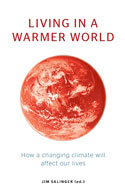 This powerful article by Lawrence Torcello, assistant professor of philosophy at Rochester Institute of Technology, first appeared at The Conversation here. It examines the potential legal liabilities that should attach to deliberate misinformation campaigns to delay action on climate change.
This powerful article by Lawrence Torcello, assistant professor of philosophy at Rochester Institute of Technology, first appeared at The Conversation here. It examines the potential legal liabilities that should attach to deliberate misinformation campaigns to delay action on climate change.
The importance of clearly communicating science to the public should not be underestimated. Accurately understanding our natural environment and sharing that information can be a matter of life or death. When it comes to global warming, much of the public remains in denial about a set of facts that the majority of scientists clearly agree on. With such high stakes, an organised campaign funding misinformation ought to be considered criminally negligent.
Continue reading “Is misinformation about the climate criminally negligent?”

 In this week’s post at The Daily Blog —
In this week’s post at The Daily Blog — 
 The Wise Response group,
The Wise Response group,  This year really has started with a bang. An
This year really has started with a bang. An